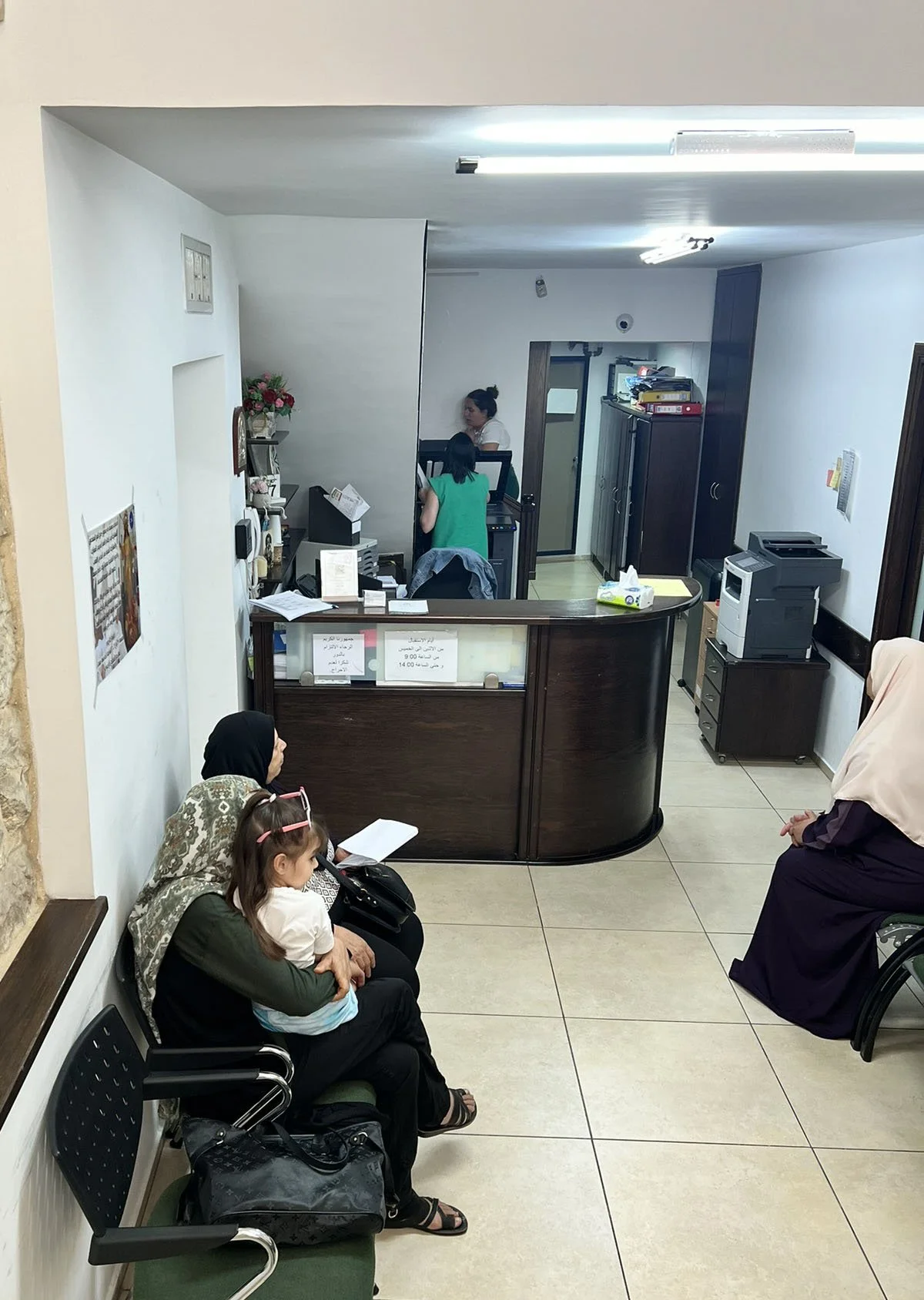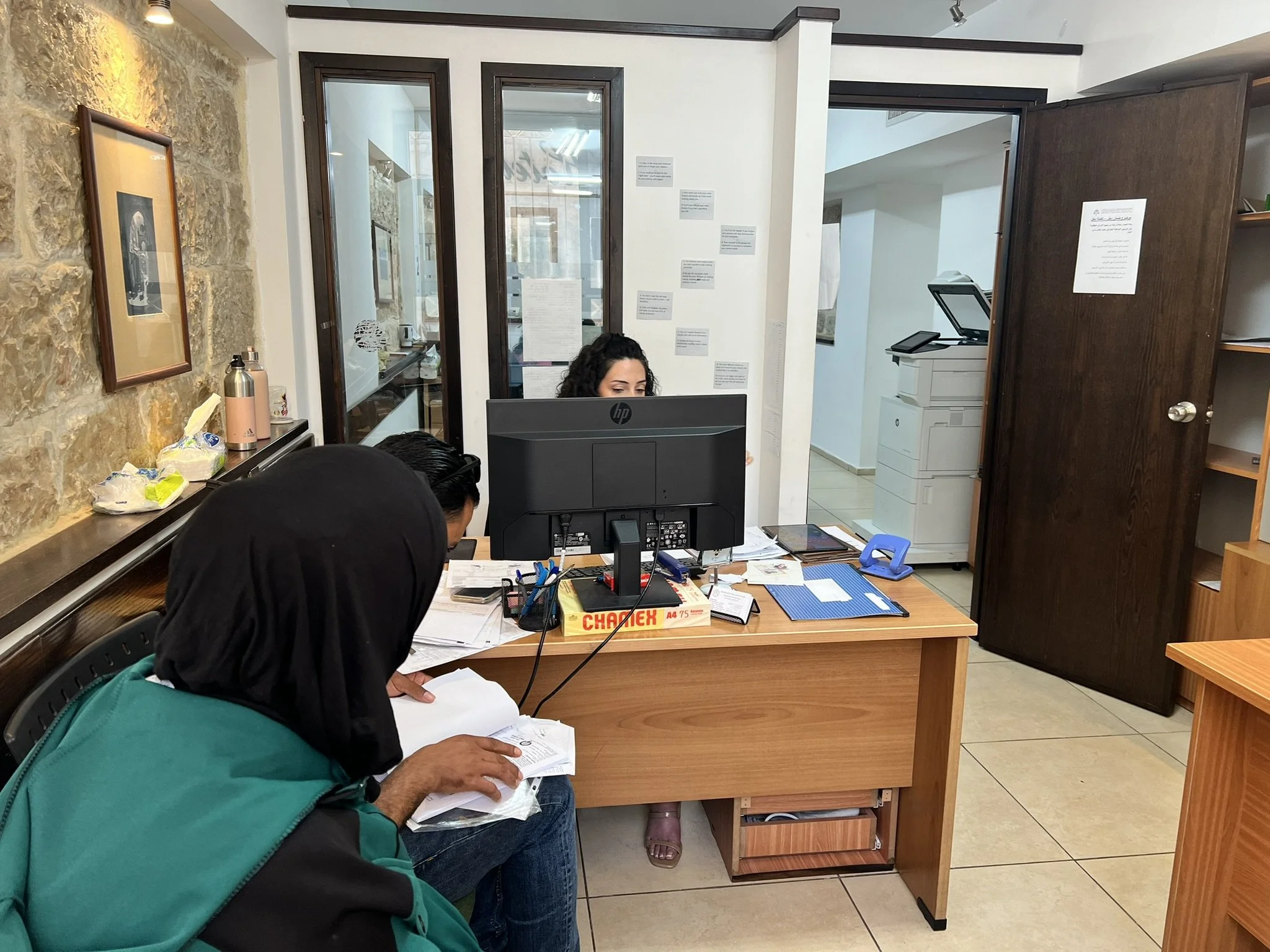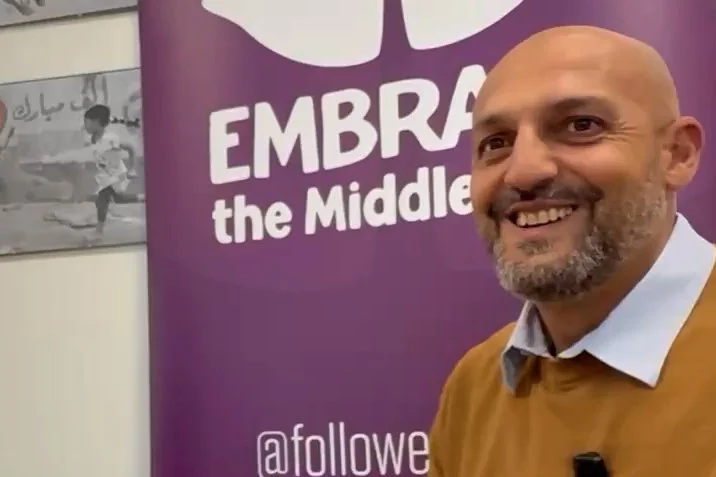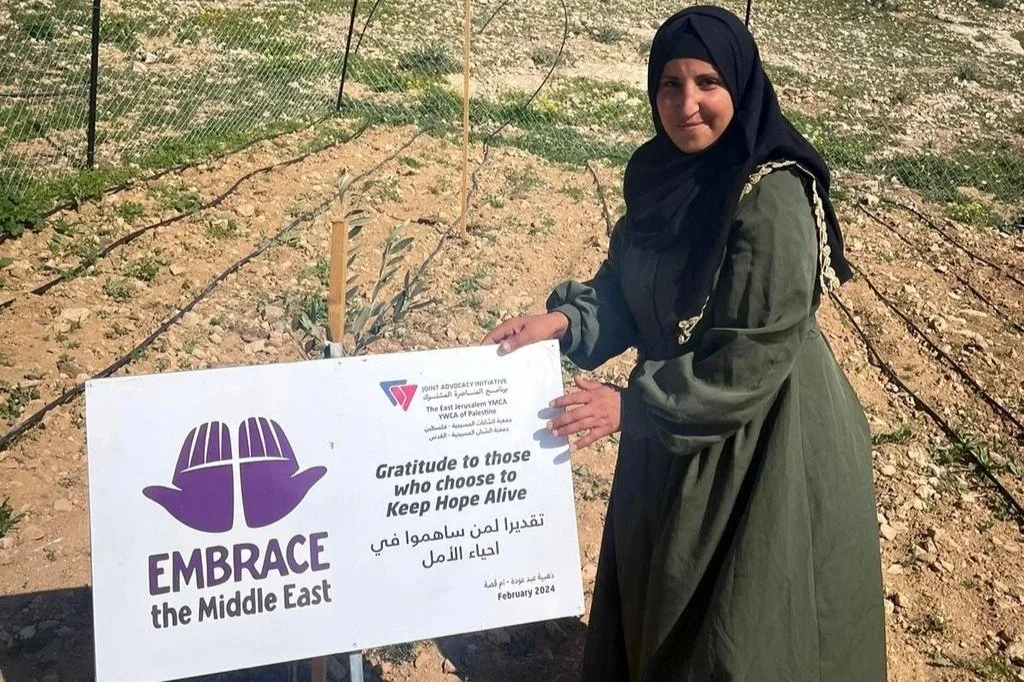Freedom to move within your own country: the courageous work of the Society of St Yves
(1) “Everyone lawfully within the territory of a State shall, within that territory, have the right to liberty of movement and freedom to choose his residence. […]
(4) No one shall be arbitrarily deprived of the right to enter his own country.”
International Covenant on Civil and Political Rights (1966)
Blog written by Gloria LD, Embrace Advocacy and Campaigns Manager
I recently had the privilege of visiting our partners in Palestine and Israel. I had never been to this beautiful land before, and the visit, as well as the many conversations with partners and the opportunity to see their work, has left a deep mark in me.
Until I crossed the Israeli checkpoint to enter the West Bank, my mind of a European who’s grown up with the privilege of free movement in my own native country, as well as in many others, could not compute what it means for a Palestinian to live under strict movement restrictions – controlling not just entry into and out of the West Bank but travel within their own land. Although areas constituting about 20% of the West Bank are, on paper, under the administrative control of the Palestinian Authority, the Israeli Defence Forces (IDF) controls the rest of the territory. If you are crossing between areas, you need to pass through an IDF checkpoint. Many additional barriers have also been established along the roads, particularly in the last two years.
Crossing a Checkpoint: A Glimpse into Daily Life
As I crossed the checkpoint into the Palestinian territory, I did not have to go through any thorough security controls, but I knew that I had to be ready to be fully inspected on my way back to Israel, where soldiers check passports or permits, inspect bags, and reports show how IDF soldiers often harass the Palestinian travellers, go through their phones and use violence against them if they find something that they do not like.
The crossing only took a few minutes, but I knew that this is not the norm. Crossing one of the many hundreds of checkpoints in the West Bank may take a few minutes up to several hours, depending on different factors, all outside the sphere of control of those who travel. I learnt that there are different types of checkpoints – those for the Palestinians, those for the Israelis, and those that both can use. The security checks vary depending on whether you have an Israeli number plate on your car, on the origin of your identity documents, or it may vary depending on what you look like. Many of the IDF soldiers at the checkpoints are very young, some of them in their early 20s.
The Wall: A Physical and Psychological Barrier
As I was trying to absorb this harsh piece of reality of Palestinian day-to-day life, I was confronted with another piece of it as the bus entered into Bethlehem and was approaching its first stop into the city. The Wall, by some known as the Separation Barrier, by others as a Security Barrier, was standing in front of me in all its terrible might. The Wall was built by Israel between 2000 and 2005 along the length of the Israel/West Bank border – the so-called “Green Line” (although in many places it sits deep within what had been Palestinian territory).
The Wall.
Apparently, in some sections, the Wall is double the height of the Berlin Wall, and overall, the West Bank wall is more than four times the length of the Berlin Wall.
As I was lifting my gaze to capture the whole sight of the Wall, my head could only formulate one single, sadly not very refined, thought – “this is absolutely crazy!” To me it stood as a symbol of human stubbornness in not wanting to understand that separating yourself from a “problem” does not eliminate it altogether. Segregation only brings to more violence and misunderstanding.
The Web of Restrictions: Road Gates and Daily Interruptions
As I went on with my journey, I learnt how the wall, the checkpoints, are not just something “crazy” and difficult to understand, they are components of a tight, suffocating net of control over the movement, choice of residency, and travel opportunities for the Palestinian people. Every single aspect of their lives is ruled by such restrictions and other aspects of the Israeli occupation.
A partner shared with me that to take her little daughter to school, they have to go through three road gates and one checkpoint every morning. These turned what would be a 20-minute drive into a much longer, stressful and time-consuming task.
The road gates are another piece of the complex puzzle of restrictions facing Palestinians in the West Bank. They stand at the entry or exit of a city, town or village, and they may shut automatically at an arbitrary time and for an arbitrary interval of time. They may be shut by IDF soldiers; but in some cases, settlers have control over those gates and may choose to shut them whenever they decide to do so.
When a gate is shut, the community is cut off from the rest of the West Bank, until the gate opens again. Parents who need to take their children to school keep each other updated on which gates they find open or closed, to help others find a quicker way to destination. It baffled me how a task like taking your child to school is so simple to a parent here in the UK, probably not raising any worries apart from being late to work or having to deal with a stroppy child in the backseat, while for a Palestinian parent, it turns into a mission with potential intrusive searches, unnecessary delays and stress.
The work of St Yves: providing legal assistance to challenge travel bans
Offices of the Society of St Yves
Meeting colleagues from the Society of St Yves, an Embrace Partner, was enlightening to understand more about this reality. St Yves is a human rights organization working under the patronage of the Latin Patriarchate in Jerusalem. They provide legal assistance to communities in need in the areas of house demolition prevention, right to housing and residency in East Jerusalem, and support to freedom of movement. The latter involves supporting Palestinians across the land who receive “security bans”, which prevents them from entering East Jerusalem, moving freely across the Palestinian territory, or even travelling abroad. Last year, St Yves was able to handle 905 freedom of movement cases, along with many others, impacting overall about 72,000 people affected by restrictions.
Colleagues from St Yves stressed the fact that their work is increasingly difficult, but that even if legal cases might not be successful, it is important to stand alongside these communities and support them, to let them know that someone is fighting for them and that they are not forgotten. St Yves uses the law to fight against a biased system, and at Embrace, we are incredibly proud to have them as partners and to contribute to the work they do to stand up for justice and freedom for all.
SUPPORT THE WORK OF THE SOCIETY OF ST YVES
As the impact of the occupation in the West Bank becomes ever-more severe, the work of our partners is a vital lifeline. Please consider giving a donation today to help the Society of St Yves and our partners across the region.
YOU MIGHT ALSO BE INTERESTED IN…
THE OCCUPATION, OLIVE TREES AND FAITH IN THE WEST BANK
An interview with Peter Nasir, General Secretary of the East Jerusalem YMCA.






